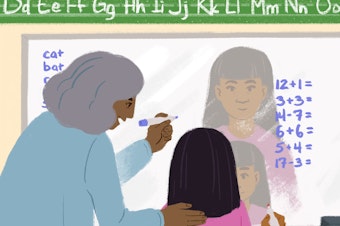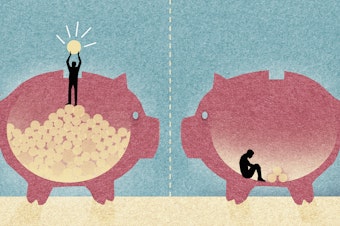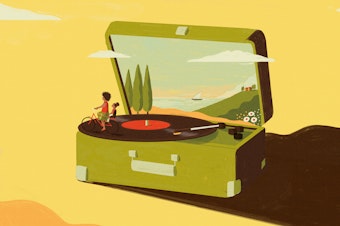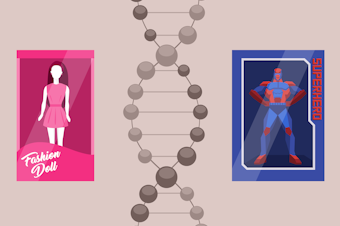Rhaina Cohen
Stories
-

What's Not On The Test: The Overlooked Factors That Determine Success
Smarts matter. But other factors may play an even bigger role in whether someone succeeds. This week, we speak with Nobel Prize-winning economist James Heckman about the skills that predict how you'll fare in life. We'll also look at programs that build these skills in the neediest of children – and new research that suggests the benefits of investing in kids and families can last for generations.
-

Where Does Religion Come From? One Researcher Points To 'Cultural' Evolution
If you've taken part in a religious service, have you ever stopped to think about how it all came to be? How did people become believers? Where did the rituals come from? And what purpose does it all serve? This week, we bring you a July 2018 episode with social psychologist Azim Shariff. He argues that we should consider religion from a Darwinian perspective, as an innovation that helped human societies to thrive and flourish.
-

All The World's A Stage—Including The Doctor's Office
Placebos belong in clinical trials, not in the doctor's office. At least, that's been the conventional wisdom for decades. This week, we ask whether placebos have more to offer than we've realized, and what they might teach us about healing. For research related to this episode, please visit: https://n.pr/2B9v2B0
-

Why No One Feels Rich: The Psychology Of Inequality
If you've ever flown in economy class on a plane, you probably had to walk through the first class cabin to get to your seat. Maybe you noticed the extra leg room. The freshly-poured champagne. Maybe you were annoyed, or envious. Social psychologist Keith Payne says we tend to compare ourselves with those who have more than us, but rarely with those who have less. This week, we explore the psychology of income inequality, and how perceptions of our own wealth shape our lives.
-

Never Go To Vegas
All social classes have unspoken rules. From A-list celebrities to teachers, doctors, lawyers, and journalists — there are social norms that govern us, whether we realize it or not. This week on Hidden Brain, we look celebrity culture, as well as another elite group: the yoga-loving, Whole Foods-shopping, highly-educated people whom one researcher calls the new "aspirational class." This episode is from December 2017.
-

One Head, Two Brains: How The Brain's Hemispheres Shape The World We See
This week, we search for the answer to a deceptively simple question: why is the brain divided? Psychiatrist Iain McGilchrist explains why popular distinctions between the "left brain" and "right brain" aren't supported by research. He argues that one hemisphere has come to shape Western society — to our detriment. For more information about this episode, please visit https://n.pr/2SxITco
-

Rewinding & Rewriting: The Alternate Universes In Our Heads
All of us are time travelers. We go back in history to turning points in our lives, and imagine how things could have turned out differently. Psychologists refer to this as "counterfactual thinking." This week on Hidden Brain, we look at why some events prompt these "What if?" questions, while others do not. This episode originally aired in May 2018.
-

Starving The Watchdog: Who Foots The Bill When Newspapers Disappear?
When a newspaper shuts down, there are obvious costs to the community it serves: job losses, fewer local stories. But new research suggests there's another consequence that's harder to spot—one that comes with a hefty price tag for residents. This week on Hidden Brain we ask, who bears the cost when nobody wants to pay? For more information about the research in this episode, visit https://n.pr/2zSPraS.
-

Radio Replay: Bringing Up Baby
This week we focus on the behavior of the youngest members of the human race. We try to translate the mysterious language of babies. And we ask, when should we step back and just let our children be? For more information about the research in this episode, visit https://n.pr/2TuxEz3.
-

Nature, Nurture, And Our Evolving Debates About Gender
Gender is one of the first things we notice about the people around us. But where do our ideas about gender come from? Can gender differences be explained by genes and chromosomes, or are they the result of upbringing, culture and the environment? In this encore episode from October 2017, we delve into debates over nature vs. nurture, and meet the first person in the United States to officially reject the labels of both male and female, and be recognized as "non-binary."